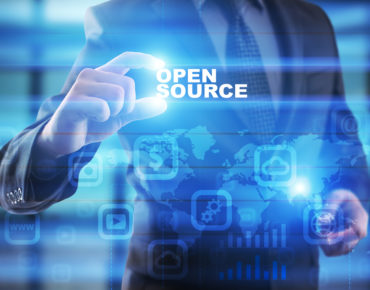Licensing Reform Movement Gathers Steam

via Shutterstock
An effort to promote balanced licensing rules for open source software is gaining momentum with the addition of 14 new companies adopting guidelines designed primarily to reduce compliance errors.
Open source leader Red Hat (NYSE: RHT) announced Monday (July 16) that Amazon (NASDAQ: AMZN), Intel Corp.(NASDAQ: INTC) and a dozen other companies have signed onto a General Public License (GPL) Cooperation Commitment. The licensing guidelines unveiled last November aim to thwart aggressive or unfounded enforcement of intellectual property claims while reducing uncertainty over compliance.
Facebook, Google (NASDAQ: GOOGL) and IBM (NYSE: IBM) were among the first open source contributors to join the licensing effort. Along with Amazon and Intel, new committers include ARM, Canonical, GitLab, Liferay, Linaro, Maria DB, NEC (TYO: 6701), Pivotal (NYSE: PVTL), Philips (NYSE: PHG), SAS, Toyota (NYSE: TM) and VMware (NYSE: VMW).
The licensing guidelines are targeted primarily at Linux, among the largest open-source code bases. The 24 companies agreeing to adopt the licensing guidelines, known as GPLv2, represent nearly 40 percent of corporate code to the Linux kernel, the bedrock of most open source software.
Six other companies joined the licensing effort in March, including Cisco Systems (NASDAQ: CSCO), Hewlett Packard Enterprise (NYSE: HPE) and Microsoft (NASDAQ: MSFT), which became a key player in the open source software sector with its June acquisition of the GitHub collaboration platform for developers.
The licensing rules include a provision that allows users to “cure” errors in license compliance. Red Hat said last fall the relaxed rules for license compliance errors would be extended to software code protected under previous versions of the public licensing rules.
“The cure rights offer additional comfort that users of GPLv2 code have reasonable assurances of quiet use of that code, even if there is a temporary license noncompliance due to ambiguity, misunderstanding or otherwise,” David Levine, Red Hat’s assistant general counsel, explained in a blog post.
“We also believe that community adoption of these rights will reduce the opportunity for copyright trolling,” Levine added.
Separately, VMware said it was adopting the cure approach to provide “everyone using our code greater predictability and a well-defined grace period in cases of potential license non-compliance.”
Meanwhile, Red Hat reported that about 140 developers have so far signed on to an extension of the licensing agreement as a way to promote predictable enforcement of open source licenses. Red Hat also said it has extended its commitment to cover its own open source projects.
Facebook (NASDAQ: FB) noted last fall in joining the effort that it provides developers a “good faith opportunity” to correct errors related to license compliance.
Related
George Leopold has written about science and technology for more than 30 years, focusing on electronics and aerospace technology. He previously served as executive editor of Electronic Engineering Times. Leopold is the author of "Calculated Risk: The Supersonic Life and Times of Gus Grissom" (Purdue University Press, 2016).










